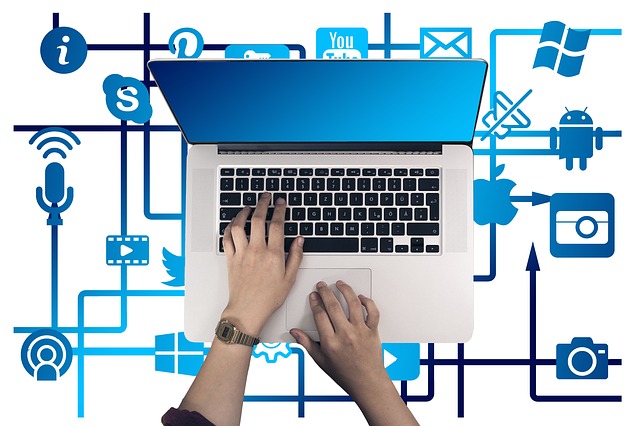
Introduction to
Computer
Software
Software & Hardware?
Computer Instructions or
data, anything that can be
stored
electronically is Software.
Hardware is one that is
tangible. The storage devices
(Hard
disk, CD’s etc.,), mouse, keyboard CPU and
display
devices (Monitor) are Hardware.
For
example: There is a problem in the Software implies
– Problem
with program or data
Types of Software
System Software
Application Software
Open source Software and
Proprietary Software
System Software:
System
Software includes the Operating System and all
the
utilities that enable the computer to function.
System software is a term
referring to any computer
software
which manages and controls the hardware so
that application
software can perform a task.
Example:
Operating
Systems, Compiler, Loader, Linker, Interpreter
Application Software:
Application
Software includes programs that do real work
for user.
Example:
Payroll
systems, Inventory Control, Manage student
database,
Word Processor, Spreadsheet and Database
Management
System etc.,
Open Source Software:
Open source
software (OSS) is computer software
whose
source code is available under a license that
permits
users to use, change, and improve the software,
and to redistribute
it in modified or unmodified form.
It is often developed in a
public, collaborative manner.
Well-known
OSS products are Linux, Netscape, Apache,
etc.,
Proprietary Software:
Proprietary
software (also called non-free
software) is software with restrictions on
using,
copying
and modifying as enforced by the proprietor.
Restrictions
on use, modification and copying is
achieved
by either legal or technical means and
sometimes
both.
Proponents of proprietary
software are Microsoft.
Ex: CAD, Nortan Antivirus
etc.,
System Software:
Operating System:
Operating System is a
software, which makes a computer
to
actually work.
It is the software the
enables all the programs we use.
The OS organizes and controls
the hardware.
OS acts as an interface
between the application
programs
and the machine hardware.
Examples: Windows, Linux,
Unix and Mac OS, etc.,
Source
Languages
Target
Languages
‘C’ language ‘C’
language
‘Pascal’ language
Machine language
FORTRAN language
C++ language
ADA language
Compiler:
A compiler is a program that reads a
program in one
language – the source language and
translates into an
equivalent program in another
language – the target
language.
Loader: A loader is the part of an operating system that
is responsible for
loading programs into memory,
preparing them for
execution and then executing them.
The loader is usually
a part of the operating system's
kernel and usually is
loaded at system boot time and
stays in memory until
the system is rebooted, shut down,
or powered off.
In Unix, the loader is
the handler for the system call
execve().
Linker:
A linker or link
editor is a program that takes
one or more objects
generated by compilers and
assembles them into a
single executable program.
Linkers can take
objects from a collection called a library.
The objects are
program modules containing machine
code and information
for the linker.
The linker takes care
of arranging the objects in a
program's address
space.
Interpreter:
An interpreter is a
computer
program that
translates and executes
instructions written
in a computer programming
language line-by-line,
unit by unit etc.,
An interpreter needs
to be able to analyze, or
parse, instructions
written in the source
language.
Example: Lisp systems,
etc.,
Application Software:
Word Processors:
Word
processing is a tool that helps user in creating,
editing,
and printing documents. Word processors will
normally
have the following capabilities built into them:
Spell checking
Standard layouts for normal
documents
Have some characters appear
in bold print,
italics,
or underlined
Center lines, make text line
up on the left side
of the
paper, or the right side of the paper
Save the document so it can
be used again
print the document.
Examples:
WordPerfect and Microsoft Word
Spreadsheets: The spreadsheet packages are
designed
to use numbers and formulas to do calculations
with ease.
Examples of spreadsheets include:
Budgets
Payrolls
Grade Calculations
Address Lists
The most
commonly used spreadsheet programs are
Microsoft
Excel and Lotus 123.
Graphic Presentations: The presentation
programs
can make giving presentations and using
overheads
easier. Other uses include:
Slide Shows
Repeating Computer
Presentations on a
computer
monitor
Using Sound and animation in
slide shows
The most
recognized graphic presentation programs are
Microsoft
PowerPoint and Harvard Graphics.
Database Management System (DBMS):
A DBMS is a software tool
that allows multiple users to
store,
access, and process data into useful information.
Database programs are
designed for these types of
applications:
Membership lists
Student lists
Grade reports
Instructor schedules
All of
these have to be maintained so you can find what
you need
quickly and accurately.
Example:Microsoft Access,
dBASE, Oracle.
Questions:
1. Think about some machine / items / gadgets having
only
Hardware.
2. Think about some machine / items / gadgets having
both
Hardware and Software.
3. Find the Operating Syste, you are using and its
version.
4. Develop some application using
Word – processor
Spread sheet
and list
some important command.
1. Find 5 proprietary software names.
Hakuna maoni:
Chapisha Maoni